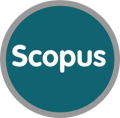The Opportunities of Using Malay Apple (Syzygium malaccense (L). Merr. & Perry) Wood Stem Extract as Halal and Thayyib Antidiabetic Drugs
DOI:
https://doi.org/10.15575/ijhar.v1i2.5328Keywords:
antidiabetic drugs, extract wood stem, halal and thayyib, malay apple.Abstract
References
Adnyana, I. K., Yulinah, E., Soemardji, A.A, Kumolosasi, E., Iwo, M. I, Sigit, J. I. & Suwendar. (2004). Uji Aktivitas Antidiabetes Ekstrak Etanol Buah Mengkudu (Morinda citrifolia L.). Acta Pharmaceutica Indonesia, 29(2), 43-49.
Aksara, R., Musa, W. J. A. & Alio, L. (2013). Identifikasi Senyawa Alkaloid dari Ekstrak Metanol Kulit Batang Mangga (Mangifera indica L.). Jurnal Entropi, 8(1), 514-519.
Anonim. (2014). Situasi dan analisis Diabetes, Pusat Data dan Informasi Kementerian Kesehatan RI.
Arumugam, B., Manaharan, T., Heng, C. K., Kuppusamy, U. R. & Palanisamy, U. D. (2014). Antioxidant and Antiglycemic Potentials of a Standardized Extract of Syzygium malaccense. LWT - Food Science and Technology, 59(2), 707-712.
BPOM. (2000). Parameter Standar Umum Ekstrak Tumbuhan Obat. Jakarta: BPOM Direktorat Pengawasan Obat Tradisional.
D'Adamo, Peter, J. & Catherine, W. (2006). Diabetes: Penemuan Baru Memerangi Diabetes Melalui Diet Golongan Darah. Yogyakarta : Bentang Pustaka.
Dewar, W. A. & McDonald, P. (1961). Determination of Dry Matter in Silage By. Journal of the Science of Food and Agriculture, 12(11), 790-795.
Fauziah, N. & Musthapa, I. (2019). The Utilization of Jambu Bol (Syzygium malaccense (L). Merr. & Perry ) Stem as a New Source of Antioxidants (Pemanfaatan Kayu Batang Jambu Bol (Syzygium malaccense (L). Merr. & Perry) sebagai Sumber Antioksidan Baru.) Jurnal Ilmiah Farmako Bahari, 10(1), 33-41.
Giugliano, D., Ceriello, A. & Esposito, K. (2008), Glucose Metabolism and Hyperglycemia, Am J Clin Nutr, 87, 17-22.
Nuryani, A., Pratiwi, N. & Mohammad, A. B. (2015). Fikiran Masyarakat, 3(1), 13 -21.
Rahman, Z. A. (2010). Jemaah Haji Malaysia Menggunakan Vaksin Haram?. Retrived from www.zaharuddin.net.
Rismayanthi, C. (2010). Terapi Insulin Sebagai Alternatif. 7(2), 29-37.
Santosa, U. (2015). Makanan Yang Thayyib, Jurnal Civitas Akademika. Retrived from sivitasakademika.wordpress.com/
Sardjon, R. E., Musthapa, I., Solihin, H. & Ramdhani, R. (2012). Physicochemical Composition of Indonesian velvet bean (Mucuma pruriens L.) Global Journal of Research on Medicinal Plants & Indigenous Medicine, 1(4), 101-108.
Sfaat, I. (2013). MUI : Produk Farmasi dan obat-obatan Harus Halal. Retrived from https://www.nahimunkar.org/
Wulandari, W. (2016). Uji Efektivitas Antihiperglikemia Kombinasi Jus Pare (Momordica charantia L) dan Jus Tomat (Solanum lycopersicum L) pada Tikus Wistar Jantan dengan Metode Toleransi Glukosa. Pharmaceutical Sciences and Research, 3(3), 145-154.
Downloads
Published
How to Cite
Issue
Section
Citation Check
License
Copyright (c) 2019 Indonesian Journal of Halal Research

This work is licensed under a Creative Commons Attribution-ShareAlike 4.0 International License.
Authors who publish in Indonesian Journal of Halal Research agree to the following terms:
- Authors retain copyright and grant the journal right of first publication with the work simultaneously licensed under a Creative Commons Attribution-ShareAlike 4.0 International (CC BY-SA 4.0) License that allows others to share the work with an acknowledgment of the work's authorship and initial publication in this journal.
- Authors are able to enter into separate, additional contractual arrangements for the non-exclusive distribution of the journal's published version of the work (e.g., post it to an institutional repository or publish it in a book), with an acknowledgment of its initial publication in this journal.
- Authors are permitted and encouraged to post their work online (e.g., in institutional repositories or on their website) prior to and during the submission process, as it can lead to productive exchanges, as well as earlier and greater citation of published work (See The Effect of Open Access).

Indonesian Journal of Halal Research by Halal Center UIN Sunan Gunung Djati Bandung is licensed under a Creative Commons Attribution-ShareAlike 4.0 International License.
Based on a work at https://journal.uinsgd.ac.id/index.php/ijhar.
















